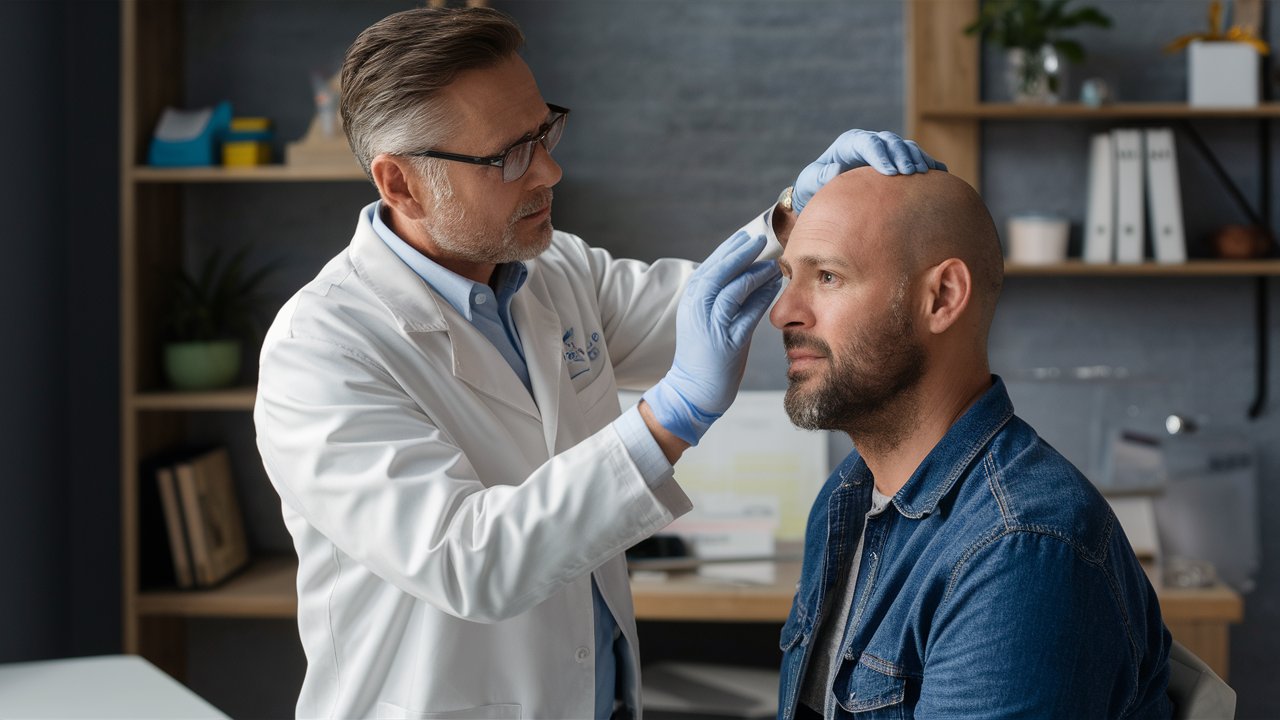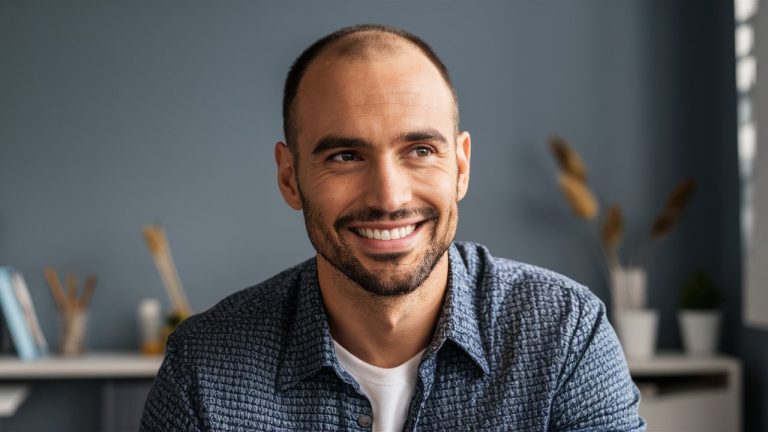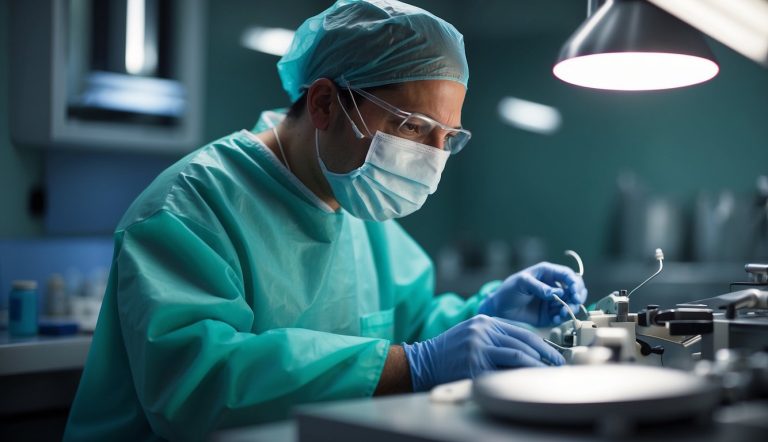What factors should I consider when selecting a hair transplant surgeon in Turkey?
When selecting a hair transplant surgeon in Turkey, it’s important to evaluate various credentials and qualifications to ensure that you receive the best possible care. Focusing on accreditation, educational background, and professional memberships provides a comprehensive view of the surgeon’s expertise.
Accreditation and Certifications
Checking a surgeon’s accreditation and certifications is vital. Look for certifications from reputable medical boards like the International Society of Hair Restoration Surgery (ISHRS).
These accreditations confirm that the surgeon is licensed and meets industry standards. Surgeons who are certified by well-recognized institutions have undergone rigorous assessments of their skills and knowledge.
List of valuable accreditations:
- ISHRS: International Society of Hair Restoration Surgery
- ABHRS: American Board of Hair Restoration Surgery
- Local Medical Boards: Verify local licenses
Accredited surgeons adhere to strict ethical guidelines and continuous education, ensuring they stay updated with the latest techniques.
Educational and Professional Background
Examining the educational background provides insight into a surgeon’s foundation in medical training. Look for surgeons with specialized training in hair restoration and a strong general medical education.
Key elements to review:
- Medical School: Attendance at recognized institutions
- Residency: Specialized training in dermatology or plastic surgery
- Experience: Years of practice and number of performed procedures
Experience is key for skill and technique development. Surgeons with extensive experience in hair transplant procedures are likely to deliver better results.
Membership in Professional Organizations
Membership in professional organizations often indicates a surgeon’s commitment to ongoing professional development. Such memberships ensure the surgeon stays informed about the latest advancements and ethical standards.
Notable organizations include:
- ISHRS: International Society of Hair Restoration Surgery
- ESHR: European Society of Hair Restoration
- ASAPS: American Society for Aesthetic Plastic Surgery
Involvement in these organizations often means participation in conferences, workshops, and further education, contributing to the surgeon’s proficiency and up-to-date knowledge.
By thoroughly checking these aspects, one can determine a surgeon’s credibility and expect higher surgical standards.
Clinic and Facility Standards

Choosing the right clinic for a hair transplant in Turkey involves evaluating the technology available, hygiene protocols, and accreditation. These aspects ensure high-quality procedures and patient safety.
State-of-the-Art Facilities
Modern clinics should offer advanced technology. Precision instruments and cutting-edge equipment enhance the accuracy and success of hair transplants. Look for clinics that use robotic assistance or FUE (Follicular Unit Extraction) techniques, which are less invasive and offer quicker recovery times. Additionally, consultation rooms and operating theatres should be designed with patient comfort in mind, featuring comfortable seating and adequate lighting.
Hygiene and Safety Standards
The hygiene and safety protocols of a clinic are critical. Operating rooms must be regularly sterilized to prevent infections. Clinics should adhere to international safety standards and guidelines for medical procedures. Regular audits and inspections help maintain these standards. Clinics must also have protocols for disposal of medical waste. Ensure that staff wear appropriate protective gear like gloves and masks during procedures.
Clinic Accreditations
Accreditations from recognized medical bodies indicate a clinic’s adherence to high-quality standards. Look for clinics accredited by international health organizations, national health authorities, or specialized bodies in cosmetic surgery. These accreditations assure that the clinic follows stringent medical protocols. Additionally, check for certifications that reflect ongoing staff training and development in the latest hair transplant techniques.
Experience with Hair Transplant Procedures
Choosing a hair transplant surgeon in Turkey involves examining the surgeon’s experience, specialization in techniques, and patient outcomes.
Surgeon’s Track Record
When evaluating a surgeon, consider their track record with hair transplant procedures. Years of practice and the number of transplants performed are key indicators of experience. Board certification and training background offer insight into the surgeon’s qualification.
Review their professional affiliations and any awards or recognitions received. Surgeons with a consistent history of successful procedures often have a higher success rate. Utilize online reviews and testimonials to gather detailed feedback from previous patients.
Techniques Specialization
Surgeons may specialize in specific hair transplant techniques, impacting the procedure’s effectiveness. Common techniques include Follicular Unit Transplantation (FUT) and Follicular Unit Extraction (FUE).
The surgeon’s expertise in these methods can affect outcomes, recovery times, and scarring. It’s beneficial to ask about any advanced or innovative technologies they use. Consider if the surgeon stays updated with the latest procedures through continuing education and professional development.
Patient Outcomes and Satisfaction
Assessing patient outcomes and satisfaction provides a measure of the surgeon’s success. Look for before-and-after photos to evaluate the quality of their work.
Patient testimonials and satisfaction surveys reveal insights into their experiences and overall satisfaction. Effective communication and personalized care throughout the transplant process are indicators of high patient satisfaction. A surgeon who demonstrates consistent, positive results is likely to be a more reliable choice.
Detailed Consultation and Personalized Treatment
When choosing a hair transplant surgeon in Turkey, it’s essential to focus on the consultation process and the creation of a personalized treatment plan. These elements help ensure tailored patient care and realistic expectations.
Initial Evaluation
The initial evaluation serves as the foundation for the treatment. During this stage, the surgeon assesses the patient’s hair loss condition, medical history, and scalp health.
Discussion of any potential risks or complications is also included. Patients should bring forth any concerns they might have. This stage helps in formulating a baseline and understanding the patient’s specific needs.
The evaluation often includes diagnostic tests and a detailed discussion on realistic expectations from the procedure. By thoroughly analyzing these factors, the surgeon can create a tailored approach to meet the patient’s goals effectively.
Designing a Personalized Treatment Plan
After the initial evaluation, a personalized treatment plan is crafted. This plan outlines the steps and procedures tailored specifically to the patient’s needs and goals.
The surgeon designs this plan based on the patient’s hair type, density, and the extent of hair loss. Details about the surgical techniques to be used, such as FUE (Follicular Unit Extraction) or DHI (Direct Hair Implantation), are also provided.
By focusing on the patient’s unique characteristics and requirements, the personalized treatment plan ensures a higher chance of success and satisfaction with the results. This step emphasizes individual care and precise execution, enhancing the patient’s confidence in the process.
Hair Transplant Techniques and Technology
Hair transplant procedures have advanced significantly, with various techniques offering different benefits. Below, we explore Follicular Unit Extraction (FUE), Direct Hair Implantation (DHI), and the latest advancements in hair transplant technology.
Follicular Unit Extraction (FUE)
Follicular Unit Extraction (FUE) is a widely used technique. In FUE, individual hair follicles are extracted from the donor area and implanted into the thinning or balding areas. This method minimizes visible scarring, making it popular.
The FUE technique often uses tools like micromotors or robotic assistance to ensure precision. Sapphire FUE is an advanced form of FUE that employs sapphire blades for creating incisions. These blades are finer than standard steel ones, resulting in more accurate and denser implantations.
FUE is popular among those seeking natural-looking results with minimal downtime. It is essential to choose a skilled surgeon to ensure the best outcomes.
Direct Hair Implantation (DHI)
Direct Hair Implantation (DHI) is another innovative hair transplant technique. DHI uses a specialized tool called the Choi pen, which allows for simultaneous extraction and implantation of hair follicles.
This method offers greater control over the depth, angle, and direction of each follicle, ensuring high precision and natural results. The DHI technique can reduce the handling time of grafts, which is beneficial for graft survival rates.
DHI may involve fewer sessions compared to traditional methods and is ideal for patients looking for a quick recovery and minimal scarring. The skill and experience of the surgeon using this technique are vital for achieving the desired results.
Advanced and Latest Techniques
Several advanced techniques are emerging in the hair transplant field. These include robotic hair transplants, where robots assist in extracting and implanting hair follicles. Robotic systems offer a high degree of accuracy and consistency.
Laser-assisted hair transplants use laser technology to create recipient sites, potentially reducing trauma and improving healing times. Additionally, stem cell hair transplants are gaining traction. This technique involves regenerating hair follicles using stem cells, though it’s still in experimental stages.
Nanotechnology and bioprinting are also being explored for future hair restoration options. These advancements offer exciting possibilities for more effective and less invasive treatments.
Post-Operative Care and Follow-Up
Recovering from a hair transplant surgery requires careful attention to post-operative care and a well-structured follow-up plan. Evaluating the surgeon’s instructions, the availability of follow-up appointments, and their strategy for managing complications are essential factors for ensuring successful results.
Post-Surgery Instructions
Clear post-surgery instructions are essential for patient recovery. These instructions typically include guidelines on how to care for the transplanted area, what activities to avoid, and medications to take. Patients should receive detailed information on:
- How to clean the scalp
- When to resume normal activities
- Signs of infection or issues requiring professional attention
Understanding these instructions can significantly impact the healing process and final results.
Availability of Follow-Up Appointments
Follow-up appointments are important for monitoring progress and addressing any concerns. The surgeon should provide a schedule for these appointments, usually starting a day or two after surgery and continuing for several months.
Regular follow-ups help in:
- Checking the healing process
- Removing any sutures if used
- Monitoring hair growth and scalp health
Patients should feel assured that their surgeon is accessible and responsive to their needs.
Management of Complications
Effective management of complications is critical for patient safety. Despite best practices, complications such as infection, swelling, or hair transplant failure can occur. A proficient surgeon will have a clear plan for addressing these issues promptly.
Key aspects include:
- Immediate availability for emergencies
- Prescribing appropriate treatments for infections
- Adjusting post-operative care as needed
Patients should inquire about the surgeon’s protocol for handling complications to ensure they will receive comprehensive care.
By focusing on these specific elements, patients can better navigate their post-operative journey and achieve the desired outcomes from their hair transplant surgery in Turkey.
Cost and Value Considerations
Selecting a hair transplant surgeon in Turkey involves evaluating cost, obtaining transparent pricing, comparing costs among clinics, and exploring financing options. These factors help ensure affordability while maintaining quality care.
Transparent Pricing
Transparent pricing is essential when choosing a hair transplant surgeon. Patients should ask for detailed breakdowns of costs, including consultation fees, surgery costs, post-operative care, and any additional expenses. Clear pricing prevents unexpected charges and helps in budgeting effectively. Reputable clinics will provide itemized costs without hidden fees. Transparency in pricing builds trust and ensures patients understand what they are paying for.
Comparing Costs Among Clinics
Comparing costs among clinics is a practical step. Prices can vary significantly between clinics for similar procedures. Patients should research and compare quotes, considering what is included in the price. Factors like location, surgeon experience, clinic reputation, and services offered influence pricing. Creating a comparison table can help in visualizing differences:
| Clinic Name | Location | Cost of Procedure | Services Included | Surgeon Experience |
|---|---|---|---|---|
| Clinic A | Istanbul | $2,500 | Surgery, Follow-ups | 10+ years |
| Clinic B | Ankara | $3,000 | All-inclusive | 15+ years |
Such comparisons assist in making informed decisions.
Financing Options
Financing options provide flexibility in managing the cost of a hair transplant. Many clinics offer payment plans, medical loans, or installment options. Patients should inquire about these alternatives to spread the cost over time, making it more manageable. Understanding the terms, interest rates, and repayment schedules is important. Discussing financing options with clinic staff will ensure patients find a suitable plan that aligns with their financial situation.
Reputation and Peer Reviews
When choosing a hair transplant surgeon in Turkey, evaluating their reputation and peer reviews is essential. Key aspects include testimonials from previous patients, analyzing online reviews and ratings, and exploring surgeon and clinic success stories.
Testimonials from Previous Patients
Testimonials from past patients provide first-hand insight into the quality of care and results a surgeon can deliver. They can offer valuable information about the patient’s experience, including treatment outcomes and the degree of satisfaction with both the procedure and post-operative care. This feedback often highlights the surgeon’s professionalism, skill, and patient rapport. Seeking multiple testimonials can help identify consistent patterns and common themes, providing a more comprehensive view of the surgeon’s reputation.
Online Reviews and Ratings
Examining online reviews and ratings across various platforms can offer a broad perspective on the surgeon’s proficiency and the clinic’s overall service quality. Websites such as Google Reviews, Yelp, and specialized medical forums are useful resources. Pay attention to the number of reviews, the average rating, and detailed comments. Noticing how the clinic responds to negative feedback is also important, as it reflects their commitment to customer satisfaction and continuous improvement.
Surgeon and Clinic Success Stories
Reviewing the surgeon’s portfolio, including before-and-after photos, helps gauge their success in performing hair transplants. Clinics often showcase these success stories on their websites or social media, detailing case studies that demonstrate their expertise and outcomes. Analyzing these examples can provide insights into the types of procedures performed, the diversity of cases handled, and the consistency of positive results. This information helps potential patients make an informed decision by visualizing potential outcomes and verifying the surgeon’s abilities.
Additional Services and Support
Selecting a hair transplant surgeon in Turkey involves more than just medical expertise. Patients should consider the convenience and accessibility of services such as accommodation, transportation, and support for language and medical tourism.
Accommodation and Transportation
Many clinics in Turkey offer comprehensive packages that include accommodation at nearby hotels. This ensures patients have a comfortable place to stay throughout their procedure and recovery period. Transportation services, often including airport pickups and drop-offs, are frequently part of these packages, adding ease for international patients.
Some clinics collaborate with partnered hotels to provide reduced rates. This can significantly decrease the overall cost of the procedure. Patients may also find that transportation between the hotel and the clinic is organized, ensuring timely arrival for consultations and procedures.
Language and Communication Assistance
Effective communication is vital for the success of medical procedures. Clinics that cater to international clients often employ multilingual staff or provide professional translation services. This eliminates language barriers and ensures clear communication between the patient and medical team.
Many clinics offer documentation in multiple languages, ensuring that patients fully understand the details of their treatment plans, potential risks, and post-operative care instructions. These services contribute to a smoother and more reassuring experience for international patients.
Medical Tourism Support
Turkey is a popular destination for medical tourism due to its advanced healthcare facilities and competitive pricing. Many clinics extend their services beyond medical treatment by offering guided tours of local attractions. This allows patients to combine their medical procedure with an enjoyable tourism experience.
Medical tourism facilitators may assist with visa applications, planning tourist activities, and even arranging spouses or family accommodations. Ensuring that all aspects of the patient’s visit are managed professionally can make the experience more enjoyable and stress-free. Turkey provides ample opportunities for patients to enjoy cultural and historical sites, blending healthcare with a memorable travel experience.
Frequently Asked Questions
Selecting a hair transplant surgeon involves considering qualifications, experience, techniques, aftercare, and evaluating results. Knowledge of potential risks and mitigation strategies is also essential.
What qualifications should a reputable hair transplant surgeon have?
A reputable hair transplant surgeon should hold relevant medical licenses, certifications, and memberships in professional organizations. They should have specialized training in hair transplantation procedures and a proven track record in the field.
How important is the experience of the surgeon in the success of hair transplantation?
The surgeon’s experience significantly impacts the success of hair transplantation. Experienced surgeons are more adept at handling diverse cases, ensuring precision in graft extraction and implantation, and providing personalized care based on individual needs.
What are common techniques employed by top hair transplant surgeons?
Common techniques include Follicular Unit Extraction (FUE) and Follicular Unit Transplantation (FUT). FUE involves extracting individual hair follicles, while FUT involves removing a strip of scalp tissue. Both methods have their specific use cases and advantages.
What should be expected in terms of aftercare following a hair transplant procedure?
Aftercare typically includes instructions on washing, medication to alleviate pain and prevent infections, and follow-up visits to monitor progress. Patients are advised to avoid strenuous activities and exposure to sunlight for a specified period.
How does one evaluate before and after results when choosing a surgeon?
Evaluating before and after photos of previous patients helps in assessing the surgeon’s skill. Look for consistent results, natural hairlines, and customer testimonials. Consulting with past patients can provide additional insights into the surgeon’s abilities and care.
What are the potential risks and how do surgeons mitigate them in hair transplant surgery?
Potential risks include infection, scarring, and unnatural hair appearance. Reputable surgeons mitigate these risks through sterile techniques, meticulous planning, and personalized treatment plans. They also provide detailed post-operative care instructions to ensure optimal healing and results.






